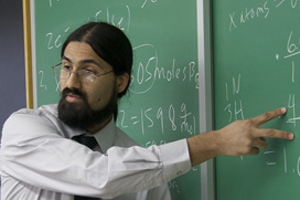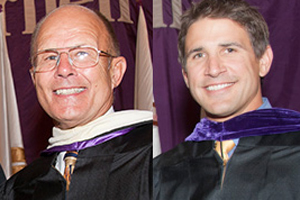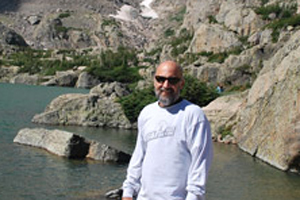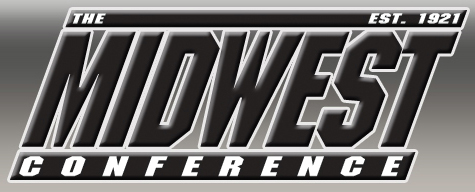Cornell grad returns to teach
It’s 9 p.m. on a Sunday night, and Jai Shanata’s Organic Chemistry I class is congregating in Cole Library. The class has a test Monday morning, and Jai has scheduled his customary late-night review session. One by one, the crowd of students grows until nearly the whole class is present; Jai’s review sessions are always well attended. Finally, the teacher walks in and waves the class into a study room.
Jai Shanata, a graduate student at Caltech, is a visiting professor teaching a total of three chemistry classes this year. Having graduated from Cornell in 2005, he is already familiar with the pace of classes on the block plan. He taught an introductory chemistry class earlier this year and is now midway through fifth block Organic Chemistry.
O. Chem. I, a requirement for biology and chemistry majors, is notoriously difficult, but Jai’s class is facing up well to the challenge. He assigns a sizable amount of homework each night – his students are often some of the last lingering in the library or Law Hall on weeknights – but encourages students to only do work that will help them learn. As a result, the class is very engaged in the material and is up to speed with the schedule recommended by other faculty members.
Jai is also receptive to feedback from his students. After every class, each student hands in an index card filled out with questions or comments. Jai answers questions and adjusts the pace of lectures according to student requests; as an aspiring college professor, he too is eager to learn.
I asked him some questions about his time at Cornell and his experience as a professor this year.
How did you like Cornell as a student? What were your favorite and least favorite things about going to school here?
I loved Cornell College as a student—it is one of the best learning environments that I’ve seen, and it was a privilege to study here. Without a doubt, my favorite thing about Cornell College is the faculty. When I interviewed as a prospective student, I had time to meet one-on-one with Professor Paul Gray and Professor Craig Tepper. From these conversations, it was clear to me that Cornell faculty really care about their students’ academics, and lives as a whole. The block plan provides faculty with dedicated time during the year to plan their courses and engage in scholarship activities as well as service to the college, which enhance the education that Cornell provides.
Outside of classes, I enjoyed playing the piano, working in the Writing Studio and tutoring for the Chemistry department. In addition, I had opportunities to do summer research with Professor Charley Liberko, research during the year with Professor Jeff Cardon and even an Honors Thesis in Philosophy of Mind with Professor Jim White.
My least favorite things about Cornell were the condition of my first dorm—Pfeiffer—and the lab facilities and climate control in West Science. Pfeiffer has since been remodeled, but the labs and classrooms in West Science are not yet at the level that our high quality science faculty deserves. There were days during the summer when it was less than 50 degrees in West Science and I was wearing a jacket while working in lab!
How did you become interested in chemistry?
I came to Cornell College certain that I would go on to medical school and become a general surgeon—that is what I had wanted to do since I was eight years old. But this plan began to change during my second class at Cornell College—Organic Chemistry I with Professor Charley Liberko. I had done well in chemistry in high school, but this class was challenging and intellectually engaging in a whole new way. My brain was learning a description of the physical world that made sense for the first time—and I was falling in love with chemistry. At the same time I met Brandi Logan ‘05 during NSO here and we started dating—I fell in love with my wife and chemistry at the same time, and Brandi and I got married on campus on the last day of classes in 2005. After my first year at Cornell, I had an opportunity to do summer research in Professor Charley Liberko’s lab. Working with him—as well as three other Cornell students—on projects to build specific molecules (organic synthesis) allowed me to apply in lab the concepts that we discussed in class. Research was often fun, and always interesting.
It became quickly apparent to me that every block at Cornell is a precious opportunity to learn. I kept my planned Biochemistry and Molecular Biology and Philosophy majors and, in my second year, added a major in Chemistry. Having three majors as well as a liberal arts training has made me more competitive since graduation and has given me a firm foundation for continuing to be a broad thinker. I consider philosophy a life-long hobby and at Caltech, in addition to my research and classes in organic chemistry and electrophysiology, I took a class on the Neurobiology of Consciousness.
What are your future career plans?
I’m currently a graduate student in chemistry at Caltech in Pasadena, California. Caltech is a small campus, like Cornell, but its culture is very research focused. There are about 1000 undergraduates, 1200 graduate students, and 600 post docs. As graduate students at Caltech, we spend an average of five to six years doing full-time research on a specialized thesis topic, as well as presenting posters at scientific meetings, and writing and publishing papers about our results. Then we write and defend our thesis, before graduating with a Ph.D. My goal now, as it has been since the middle of my time at Cornell, is to become a faculty member at a small liberal arts school and I’m currently applying for positions in Chemistry at a variety of schools.
What made you decide to come back and teach classes this year?
One of the factors that went into my initial selection of a faculty advisor to work with at Caltech was their willingness to support my career interests. I knew that I wanted significant teaching experience during graduate school, and my thesis advisor, Professor Dennis Dougherty, has supported me at every step. So, when Professor Cindy Strong contacted me to see if I might be free to teach a block at Cornell, I was happy to make time and say yes. As the plan evolved, there was particularly high enrollment in chemistry for this year so we ended up deciding that having me teach three blocks would be mutually beneficial.
How do you like the experience of teaching here? What challenges have you run into? Is it difficult to teach on the block plan?
Previous to coming to Cornell College, my classroom instructional experience has been in the form of a teaching assistant at Caltech. I worked with students in the introductory chemistry lab class, held recitation sections and office hours for general chemistry and spent some time as a head grader. Here at Cornell, I took 35 classes over 4 years as a student and I felt that I was well acquainted with the pace and structure of our blocks. Specifically, in Educational Psychology at Cornell with Professor Kerry Bostwick, I learned through experience that planning a 45 minute lesson for the first time can take a few hours. Despite this preparation, frankly, teaching at Cornell College has been even more intense than I expected. I gave myself a month to plan for each of the two different courses that I am teaching here and that was barely enough time.
What is your favorite part about coming back to teach at Cornell?
Teaching at Cornell has been even more fulfilling than I expected. The most rewarding part of teaching my first class at Cornell was that I learned unambiguously that I love to teach and truly enjoy the high level of interaction with students that a liberal arts environment allows. I hold some of my office hours in the library and Rat, and I’ve found that this more casual setting creates more relaxed students and a good learning dynamic. It is also nice to be working here with students that don’t have three to five other classes to worry about. As I’ve taught this material for the first time on the block plan, I have once again received outstanding support and mentoring from all members of the chemistry department, including Professor Craig Teague, Professor Charley Liberko, Professor Addison Ault, Professor Cindy Strong, and Professor Jeff Cardon.




